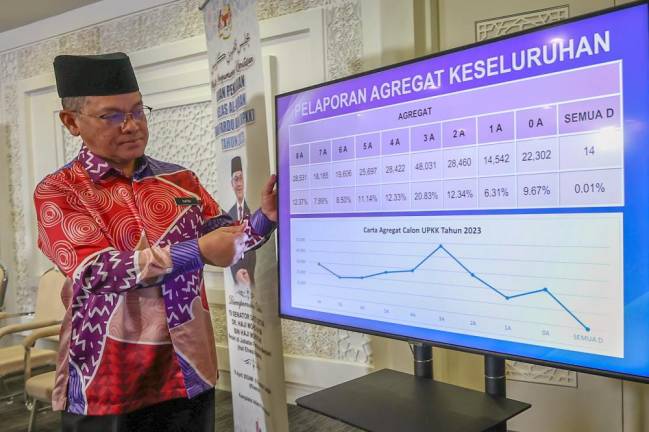PETALING JAYA: Malaysians should stop worrying about the shrinking ringgit as it involves factors beyond the government’s control, such as the US Federal Reserve System continuing to strengthen the dollar by increasing interest rates, said Sunway University economics professor Dr Yeah Kim Leng.
“The only option for the government to halt the ringgit’s fall is to maintain economic progress and development by ensuring there is no supply chain disruption and if need be, some of the higher costs can be passed on to the consumer to avoid financial distress for companies.
“Most importantly, the government needs to spend on health, education, infrastructure and rural, social and economic development, among others. This kind of expenditure will have an impact in providing for livelihoods and improving the people’s quality of life,” he said.
“But this alone will not be enough as more help must be provided at the local level. The services and assistance provided by the government need to be targeted at the lower income group, which needs help as the cost of living continues to rise.
“Providing subsidies for food and cooking gas could be one way of helping them. Also, the income of such households need to be increased by generating jobs and providing upskilling opportunities.”
Yeah also said in Budget 2023, the government must not sideline informal sector workers, who can be helped by teaching them entrepreneurial skills.
“The continuous provision of subsidies is not sustainable in the long run, so increasing productivity among the lower income group while ensuring higher income for them could help the nation wean off the idea of subsidies,” he said, adding that the long-term task for the government is to develop an entrepreneurial economy that is resilient to sudden shocks.
Universiti Tun Abdul Razak economist Dr Barjoyai Bardai said a serious problem with the Budget is that it is prepared without data on each household, and one “big brush” is used to come up with policies.
“The government looks at the macro perspective all the time, which obviously cannot help everyone. Budget 2023 must be micro perspective-based. The idea of defining B40, M40 and other income groups is outdated as the cost of living continues to rise. The claim of having about 130,000 hardcore poor in the country is superficial as more Malaysians have fallen into the poverty trap,” he said.
“Data on what has happened to these people is needed if the Budget aims to help alleviate poverty while supporting economic development. The government must look at big data analytics to collect information about each household in the country.”
Barjoyai said there are 40 million mobile phone users in the country while the population is about 36 million, adding that knowing how mobile phones are used will help the government collect data on households and direct help where it is needed.
He said the government has been trying over the last 12 years to reform how petrol subsidies are provided to avoid abuse, but faces criticism when reforms are proposed because it does not have micro-level data to help those who most need it.
He also said the government must address inflation in the Budget to lower the cost of living and provide targeted assistance to the people.
“It is critical that the government comes up with strategies in the Budget to help raise household income to a minimum of RM5,000.”













